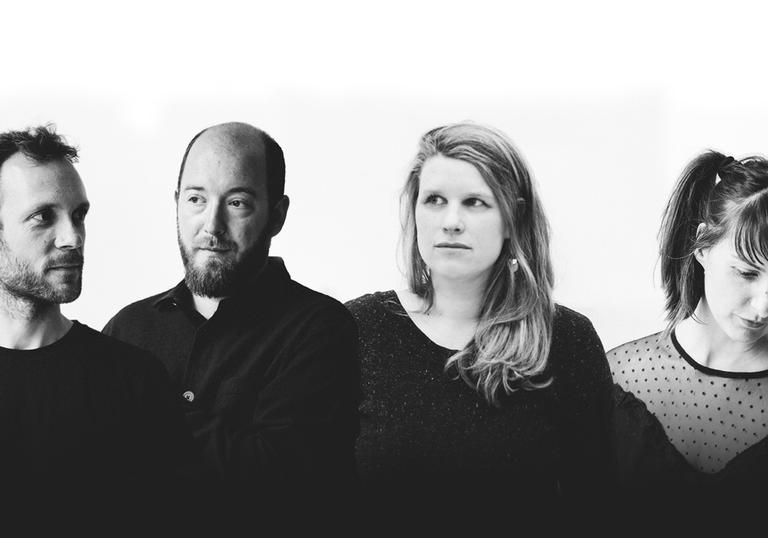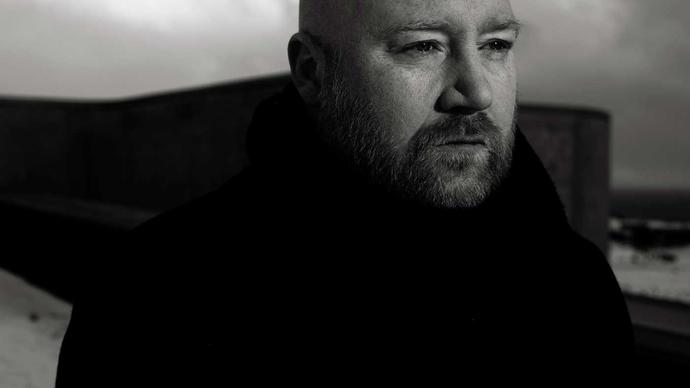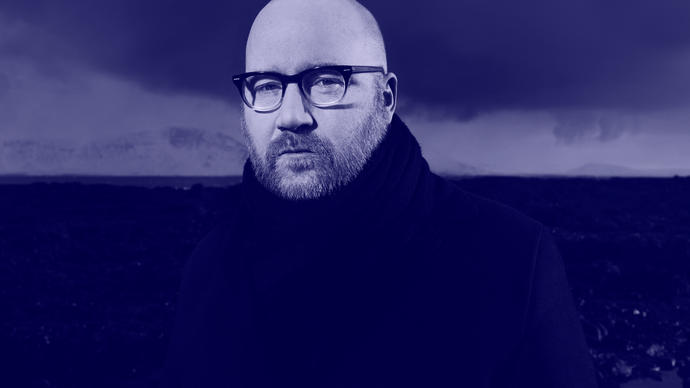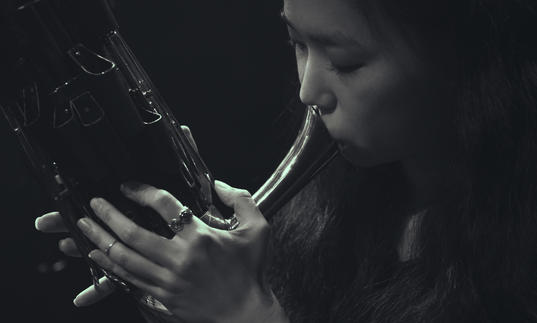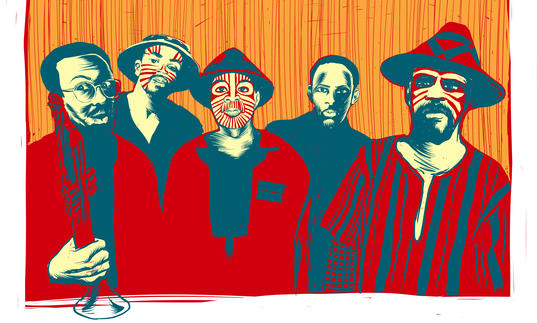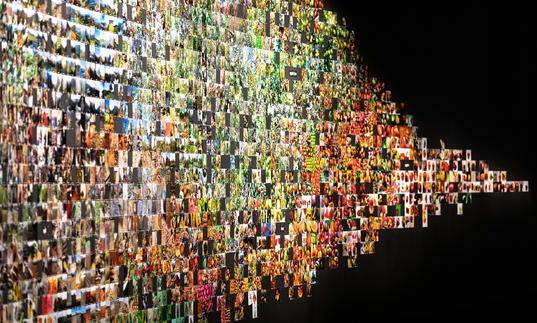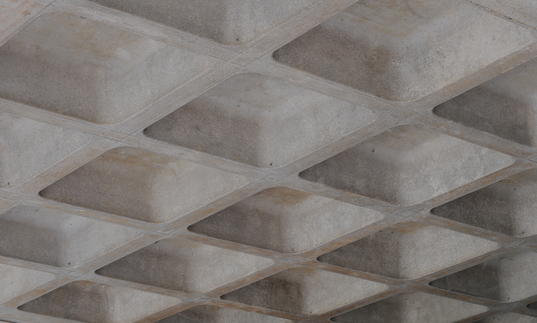Echo Collective’s relationship with the late Jóhann Jóhannsson is bittersweet, to say the least.
The Belgian ensemble first worked with the Icelandic composer on the European tour of his 2016 album Orphée; the partnership was so successful that Jóhannsson asked them to help rework his next piece, 12 Conversations With Thilo Heinzmann, a series of compositions for string quartet. But Jóhannsson died (in early 2018) before their new adventure could begin.
Fast forward to autumn 2019 and Echo Collective’s version of 12 Conversations…, was released in September by Deutsche Grammophon, and a short European tour arrives at the Barbican. It’s been a labour of love for the collective’s co-founders Margaret Hermant and Neil Leiter, to take Jóhannsson’s work to its fruition in his absence. ‘We applied our understanding of 12 Conversations… and what we imagined Jóhann was trying to express,’ says Leiter. ‘He had his tempo markings for 12 Conversations… but we had to add the dynamic or expressive markings, to bring his piece to life.’
It was British philanthropist and art collector Richard Thomas’s idea to transcend artistic boundaries by uniting music and visual art; he contacted the German abstract painter Thilo Heinzmann, who in turn suggested Jóhannsson. Echo Collective’s Belgian DNA underlines Thomas’s other wish, to highlight the cultural unity of the European Union.
When Heinzmann attended the Berlin premiere of Echo Collective’s 12 Conversations… ‘Thilo indicated that the result was truly in line with Jóhann's vision and the connection they had together,’ says Leiter. ‘That connection is obvious with the music: the attention to subtle differences between black, grey and white paralleling the attention to sound colours, the musical treatment of the beginning and ending of movements, the musical motives and the way the intensity builds.’
12 Conversations… is Jóhannsson’s first piece for string quartet but, tonally, it’s typical of his work, both elegant and elegiac, creating a feeling that’s simultaneously soothing and restless. He was a maverick in the modern classical (or neo-classical, or post-classical) world; a teenage student of piano and trombone who switched to playing rock music and, just as suddenly, started a series of transfixing solo records, starting with 2002’s Englabörn, which intertwined orchestration with a subtle palate of electronica. Jóhannsson’s profile soared with two albums for 4AD Records (IBM 1401, A User's Manual in 2006, Fordlandia in 2008), subsequently interspersing solo albums with scores for film – including the Golden-Globe-winning The Theory of Everything – theatre and TV.
Signing to the venerated label Deutsche Grammophon, Jóhannsson wrote Orphée, a haunting score partially informed by his film soundtracks. Seeking musicians to play it live, he found Echo Collective through US ambient minimalists A Winged Victory For The Sullen, who had recruited classically trained violist Leiter and violinist Hermant for the band’s European tour. Leiter, from North Carolina, and Hermant, from the French side of Belgium, had met at music conservatory and were acquaintances in Brussels, but it was A Winged Victory... that kickstarted Echo Collective. ‘When we started playing together, we were immediately close,’ recalls Hermant. ‘It felt very like natural.’
The collective – which can number swell to a unit of seven musicians – was first honoured with a commission (from Kurt Overbergh of the Ancienne Belgique concert hall in Brussels), to interpret Radiohead’s Amnesiac, which they arranged for string trio, harp, piano, woodwind, and percussion. German music hub !K7's offshoot 7K! signed Echo Collective for two albums: first, their Amnesiac and a forthcoming album of original compositions for string trio, harp and piano that is likely to, in some manner, bear Jóhannsson’s inspiring presence. ‘Jóhann had a very powerful heart, but he was quite quiet,’ says Hermant. ‘He had a lot of patience and he was very encouraging.’
Echo Collective are also intimate with Jóhannsson’s work, having played so much of it. Following the performance of 12 Conversations… ‘an intense 42 minutes,’ Leiter reckons – they will showcase Jóhannsson compositions such as Orphée highlight ‘A Song For Europa’ and three pieces from Englabörn. Performing with Hermant (violin) and Leiter (viola) are Sophie Bayet (violin) and Thomas Engelen (cello), plus Tom Lezaire (sound) and Stuart Bailes (lights), who all worked on the Orphée tour. ‘It’s important this project unfolded with the same team,’ says Leiter, ‘to bring everything we’d developed with Jóhann and apply to his work. Unfortunately, we have to do it without him.
‘His music is special,’ Leiter concludes. ‘It’s like having this tidal wave of sound take you from an empty place to a planet, with the simplest construction but its simplicity takes you to another dimension.’
‘Jóhann didn’t write sad music but it allows you to express your interior feelings, in a peaceful way,’ Hermant adds. ‘I really like his way of taking care of the sound, and the space between the sounds. It’s simple in a way, but each gesture is in the right moment. We really miss him.’
Support this evening comes from Félicia Atkinson – visual artist, experimental musician, poet and the co-publisher of Shelter Press. Her work pulls from improvisation, deep listening, cut ups, duration, silence and noise, musique concrete, poetic spaces, ambience and language. Her latest record, The Flower and The Vessel explores the impact of creative acts through melancholic piano motifs, processed voices and synths. Written whilst pregnant on tour, she described it as 'a record not about being pregnant but a record made with pregnancy'.
